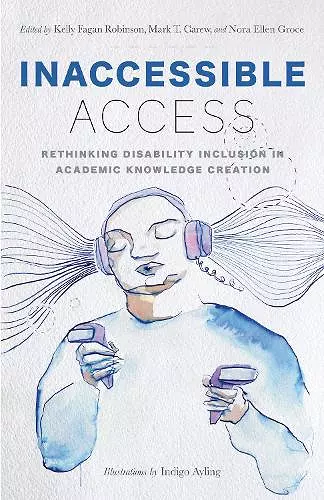Inaccessible Access
Rethinking Disability Inclusion in Academic Knowledge Creation
Mark T Carew author Indigo Ayling illustrator Mark T Carew editor Nora Ellen Groce editor Kelly Fagan Robinson editor
Format:Hardback
Publisher:Rutgers University Press
Published:15th Nov '24
Currently unavailable, and unfortunately no date known when it will be back

Inaccessible Access ethnographically addresses barriers to inclusion within knowledge-making. It focuses on the social, environmental, communicative, and epistemological barriers that people with disabilities confront and embody throughout the course of their learning and living and in the specific context of their higher education institutions and in research. It is presented by a neurodiverse, disabled, and non-cis cohort of authors, all of whom acknowledge a continuum of (in)access that is available to each contributor contingent on their inherent intersectionalities and alterities. The authors and editors of this book foreground the work that has yet to be done on recognizing the value of nonnormative ways of approaching, being in, and knowing research and higher education, particularly in cases where disablity-centered epistemologies are sidelined in confrontation with institutional norms, even within existing discourses concerning equality and alterity.
"With ethnographic detail and theoretical rigor, Inaccessible Access makes an essential contribution to critical access studies, showing that disability inclusion, equity, and justice are much more complicated than legal regimes make them out to be. A must-read for students, faculty, and administrators in higher education." - Aimi Hamraie (author of Building Access: Universal Design and the Politics of Disability) "As universities charge their offices of disability services with the challenge of advising instructors on reasonable educational accommodations, too often disabled students experience a yawning gap between what is provided and what they actually need. Inaccessible Access thoughtfully and wisely enters into that gap, or those many gaps, to explore, document, and problematize the complex terrain. This book launches a much-needed conversation about how universities can better accept, value, and support disabled students." - Scot Danforth (editor of Becoming a Great Inclusive Educator)
ISBN: 9781978841468
Dimensions: 216mm x 140mm x 18mm
Weight: 54g
206 pages